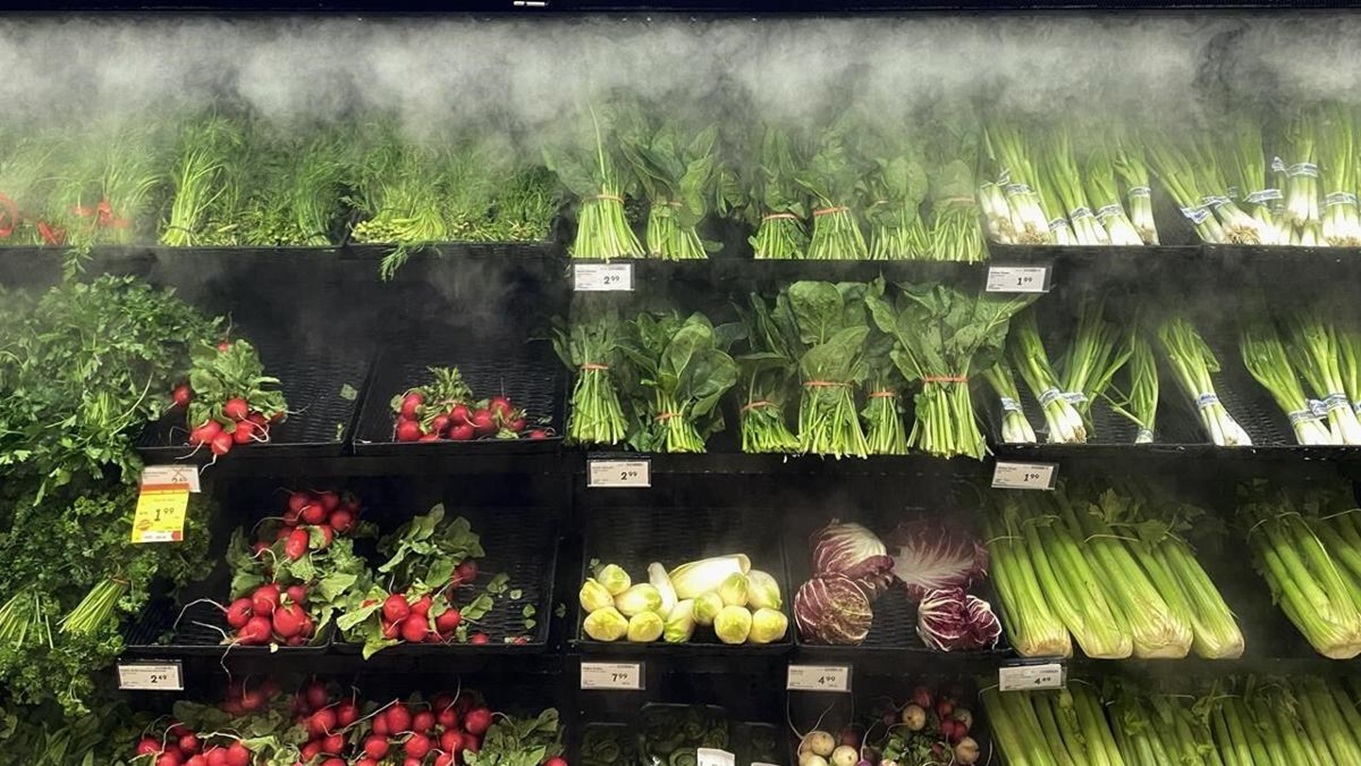
Food prices are expected to continue their upward trajectory in 2024, albeit at a reduced rate, as outlined in a highly regarded food price report issued by four Canadian universities. A display of produce at a Toronto grocery store on June 26. (The Canadian Press/Graeme Roy)
According to a recent report from Dalhousie University, the University of British Columbia, the University of Guelph, and the University of Saskatchewan, the most recent Food Price Report predicts that food prices will keep rising in 2024, although the rate of increase is expected to be slower than in previous years.
Projections within the 14th annual report suggest a rise in food prices ranging between 2.5 percent and 4.5 percent in the upcoming year, signaling a moderation in inflation. Sylvain Charlebois, the project lead and director of Dalhousie's Agri-Food Analytics Lab, emphasized the competitive landscape among grocers vying to regain customer loyalty amid increased consumer thriftiness aimed at saving expenses.
Charlebois noted that this intense competition could potentially lead to slight deflation in certain essential food items, even amidst the ongoing overall increase in food prices. Strategies such as rebates and discounts are anticipated to fuel these competitive price wars, aiming to draw consumers back.
The report foresees varied rates of price hikes across different food categories in 2024. Bakery goods, meat, and vegetables are expected to encounter the most significant price surges, projected to elevate between five and seven percent. Concurrently, prices at restaurants and for seafood items might climb between three and five percent, while dairy and fruit could witness increases ranging from one to three percent.
Despite the ongoing inflation in food prices, the report highlighted a surprising revelation from its findings in 2023. Contrary to earlier predictions, consumers spent less than anticipated at both restaurants and grocery stores. The estimated annual expenditure for a family of four during 2023 was approximately $15,595.40, nearly $700 less than the prior year's forecast.
Charlebois expressed surprise at this trend, attributing the spending reductions to the challenging economic landscape that year, particularly with escalating shelter costs amidst rapid interest rate hikes, allowing little time for households to adapt.
Looking ahead to 2024, the report predicts a further increase in annual food spending for a family of four, estimating an expense of around $16,297.20, roughly $700 more than in 2023. Charlebois anticipates a return to a more standard level of food inflation in 2024 as overall inflation stabilizes.
The report also points out the continued influence of climate change on food prices, particularly as climate-related events become more frequent and severe. Factors like drought impacting beef production, conditions affecting cocoa in Ghana and the Ivory Coast, and weather disturbances affecting sugarcane production are expected to sustain upward pressure on certain food prices.
Charlebois advises potential consumers of dark chocolate to consider purchasing it sooner rather than later, hinting at an impending rise in its price due to these environmental factors.















